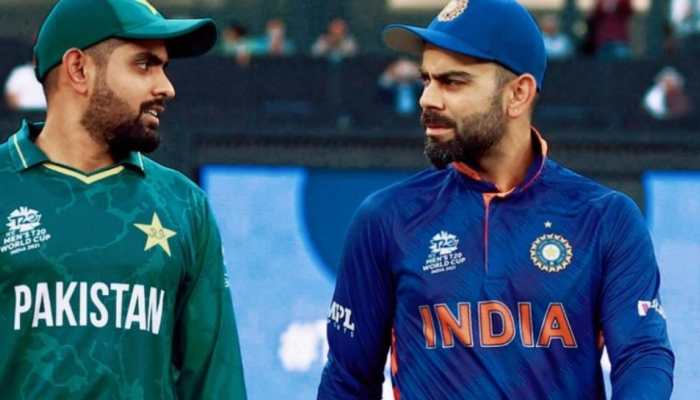Obesity Is A Disease, Not A Condition: Indian Academy Of Pediatrics Warns Of Rising Cases Among Children
Obesity is not only affecting children but is also making its presence felt among adults, with potential health implications. Here are some hard hitting facts about the rise in obesity among children in India.
Trending Photos
) Over 3.5% of children under the age of 5 in India are now classified as overweight
Over 3.5% of children under the age of 5 in India are now classified as overweight In a visual narrative dominated by scenes of children and adults indulging in roadside junk food, the issue of obesity is no longer a mere condition but a recognized disease. Recent updates from the Indian Academy of Pediatrics reflect the escalating trend of obesity among children, prompting a reevaluation of guidelines.
According to the 2020 National Family Health Survey-5, over 3.5% of children under the age of 5 in India are now classified as overweight—a stark increase from the 2015 data, signalling a 50% surge. Adolescents are not exempt, with 16% falling into the obesity category. The alarming rise in obesity, now considered a disease, demands attention as it correlates with an increased risk of diabetes, high blood pressure, and heart disease.
The Centers for Disease Control and Prevention in the United States suggests that a child's waist circumference should be half their height, indicating that anything beyond this ratio is considered overweight. Delhi, in particular, is facing a health crisis, with more than 51% of children in sports village schools reported to be unhealthy in 2021, up from 50% in 2020.
Dr Ayush Gupta, Researcher – Indian Academy of Paediatrics – Gangaram Hospital highlights, "Now obesity is not only a condition – it has been called a disease. The guidelines have been updated by the Indian Academy of Pediatrics after observing the increasing rate of obese children in India. According to which now obesity will be called a disease. This definition will apply to adults too – but this definition is based on children's health."
In a surprising revelation, a recent survey conducted by a mobile phone company highlights that 83% of children consider mobile phones an integral part of their lives. With an average screen time of six hours daily, children are sacrificing time meant for physical activities and sports. This shift, coupled with poor dietary choices, contributes significantly to the obesity epidemic.
Dr Saurabh Kataria, Pediatrician- Cloud Nine Hospital says, "People living in Asian countries are more prone to obesity than Western countries, so it is important to recognize obesity in young children. Obesity can also be reduced by eating low fat and carbohydrate food in the initial stage, but if the obesity increases, medication and in very severe cases, surgery may be required."
Further Dr Ayush Gupta adds, "Junk food is considered to be the biggest cause of obesity in children. The changing eating habits in India have made adults as well as children their prey. Another big reason is to stay away from sports and exercise less. The third big reason is that the screen time is constantly increasing. Studies have shown that children who are eating while watching TV or mobile phones often eat more than they are hungry, which leads to obesity."
While some parents diligently monitor their children's height and weight from an early age, others fail to recognize the impact of unhealthy eating habits and excessive screen time. The prevalence of childhood obesity in India suggests a critical need for parental awareness programs and initiatives promoting healthier lifestyles.
As India grapples with the escalating challenge of childhood obesity, it becomes imperative for society to address the root causes. Beyond medical intervention, there is a pressing need for holistic strategies promoting balanced nutrition, increased physical activity, and responsible use of technology. Only through collective efforts can India reverse the tide of childhood obesity and pave the way for a healthier future.
Stay informed on all the latest news, real-time breaking news updates, and follow all the important headlines in india news and world News on Zee News.
Live Tv







)
)
)
)
)
)
)
)
)
)
